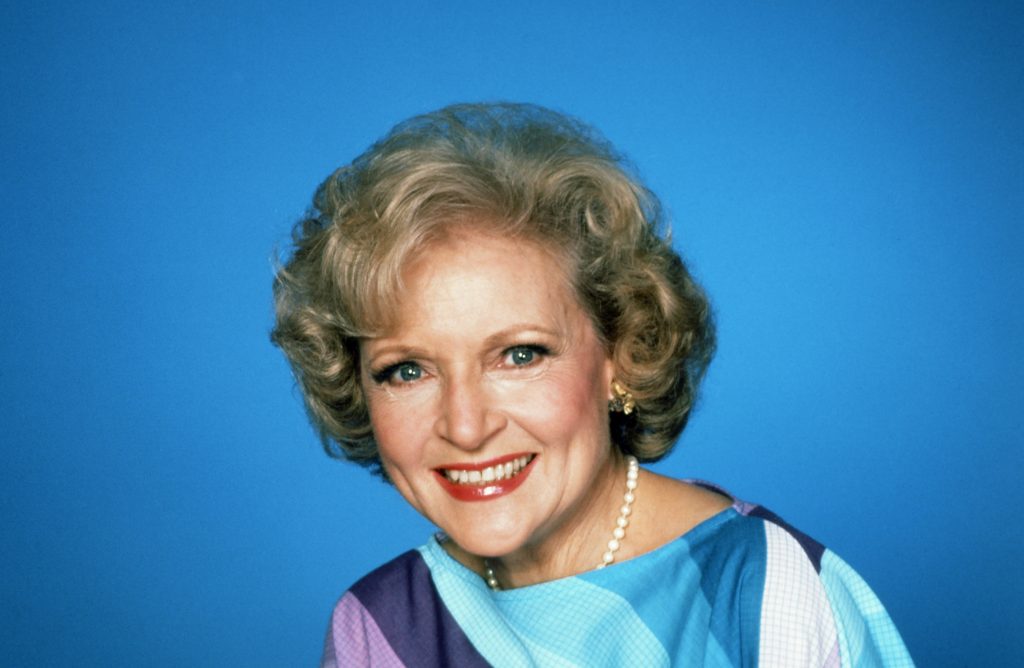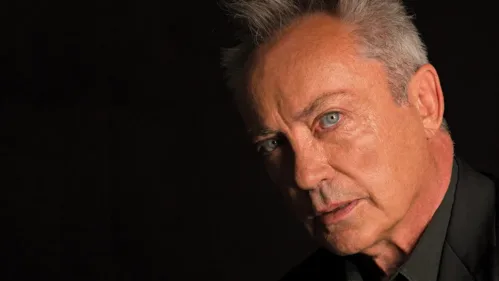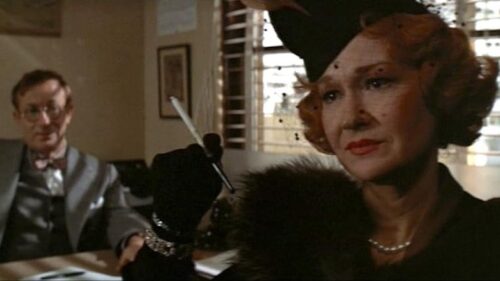The script for episode 73 of “The Mary Tyler Moore Show” called for an “icky sweet Betty White type” to play a new character, the host of “The Happy Homemaker,” a cooking and decorating show on the series’ fictional Minneapolis television station. The casting director decided to approach White herself for the role, and one of the most iconic sitcom characters of all time was born. The contrast between always-cheery always-wholesome on-air Sue Ann Nivens and the vain, competitive, overtly sexual off-air Nivens was perfect for Betty White, who knew exactly how to deploy her adorable dimpled smile to convey both the perky, helpful happy homemaker on screen and the caustic, ambitious woman behind the scenes. The character was originally written for just one episode, but she became an indispensable series standout for the remainder of the show’s run.

White’s utter fearlessness as a performer was grounded in the delight she took in delighting others, especially if she could shock them just enough to make them laugh. She had unbounded enthusiasm, she loved a challenge, and she never worried about whether the character she was playing was likeable. Whether appearing as herself or in character, she always enjoyed the unexpected twist, especially if it was insulting or raunchy. When more than half a million members of a 2012 Facebook group successfully petitioned to have her host “Saturday Night Live,” her opening monologue let them know she did not take herself – or them – seriously. “When I first heard about the campaign to get me to host ‘Saturday Night Live,’ I didn’t know what Facebook was, and now that I do know what it is, I have to say it sounds like a huge waste of time.” That appearance won her an Emmy, one of five, with 21 nominations going back to 1951.
After “The Mary Tyler Moore Show,” White is best remembered as the daffy but sweet Rose Nylund for eight seasons on “The Golden Girls.” The original idea for the show was a kind of “Miami Nice” (the opposite of the 80s hit “Miami Vice”). She was originally cast as Blanche, the always-looking-for-romance (and/or sex) character played by Rue McClanahan. Encouraged by director Jay Sandrich, White and McClanahan suggested a switch because they wanted something different from the roles they were known for. Rose quickly became a fan favorite, especially when she referred to her Norwegian-American heritage, told stories about her relatives and about growing up in the (fictional) town of St. Olaf, or just opened her eyes wide as she came out with some impossibly polysyllabic name for a Norwegian dish. White found a way to connect to even the most exaggerated characters, cheerfully describing Sue Ann Nivens as “rotten” (adding that she loved the character), and calling Rose “not the brightest nickel in the drawer, but funny.”

White later appeared with other television sitcom veterans in “Hot in Cleveland,” where once again her role was written as a one-time appearance but her popularity with the audience kept her on as a regular. And once again her character drew a lot of humor from the contrast between her appearance as a sweet elderly lady and her comments about her “late” mobster husband (it later turned out he was still around) and her sex life.
Even her most ardent fans might not be familiar with the foundational role White played in the early days of television. She made her television debut in 1949 and was the first woman to produce a sitcom. It was the innovative “Life with Elizabeth,” a fourth-wall-breaking comedy, and she also played the title role. In those first years of television, she also hosted a talk show, a game show, and a variety show, and appeared in commercials for everything from cosmetics to candy bars. She later appeared in a few movies (including “Advise and Consent” as a senator), on a soap opera, and in some television dramas including the soapy Ross Hunter production, “The Best Place to Be.” But she was at her best playing comedic characters. Carol Burnett described her in this week’s People Magazine cover story, “She’s not a jokester. It’s the way she can twist a line to get a laugh.” She was just as deliriously funny as herself, a hilarious talk show guest and a witty and competitive game show contestant. The Internet Movie Database shows 356 credits as “self,” including the 2018 documentary, “Betty White: First Lady of Television,” the 2012-2014 hidden camera prank show “Betty White: Off Their Rockers” (she also produced it) and “The Pet Set” about pets and their celebrity owners. She provided the voice for animated characters in “King of the Hill,” “The Wild Thornberries,” and “Forky Asks a Question.”

White was a devoted advocate for animal welfare and supported ocean conservation. The love of her life was another game show host, “Password’s” Allen Ludden. Long after his death, when she was asked if she would marry again, she would say, “Why remarry when you’ve had the best?” In Betty White, it was we in the audience who had the best.












